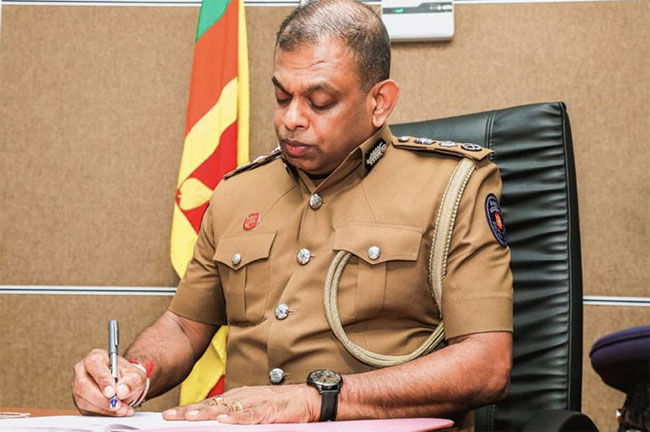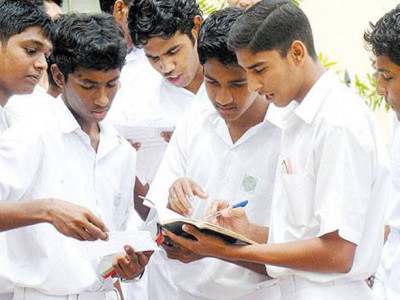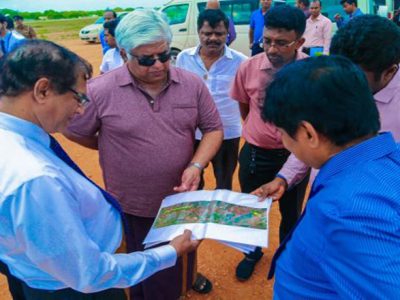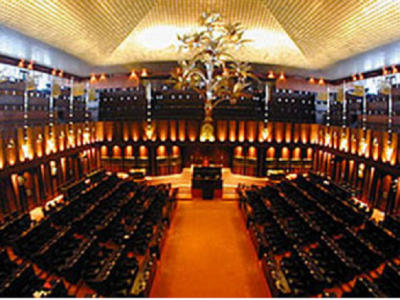(LANKAPUVATH | COLOMBO) – The Supreme Court today issued an interim order preventing Deshabandu Tennakoon from performing duties and functioning in the position of the Inspector General of Police (IGP).
The Supreme Court issued this order after granting leave to proceed with the nine petitions, filed by several parties including Cardinal Malcolm Ranjith, challenging the decision to appoint Tennakoon as the IGP.
The petitioners had sought an interim order restraining Deshabandu Tennakoon from discharging the duties and functioning in the office of IGP.
The fundamental rights (FR) petitions filed challenging the appointment of Deshabandu Tennakoon as IGP were taken up once again today (24).
The Supreme Court on July 18 concluded considering the FR petitions filed challenging the appointment of Tennakoon as the IGP.
Accordingly, the court had then announced that the decision as to whether or not the petitions will be taken up for hearing will be delivered today (24).
The court was also expected to announce as to whether an interim order will be issued preventing Deshabandu Tennakoon from functioning as the IGP.
A three-member bench had on several previous occasions considered the nine petitions put forward by several parties including the Archbishop of Colombo Cardinal Malcolm Ranjith, Prof. Savitri Gunasekara, former MP Hirunika Premachandra and several others.
The Speaker of Parliament, the members of the Constitutional Council, IGP Tennakoon, the Attorney General and several others have been named as the respondents of the petitions.
The petitioners allege that Tennakoon had neglected his duties during his tenure as the Senior Deputy Inspector General of Police (SDIG) of the Western Province when the 2019 Easter attacks happened, and when a pre-mediated attack was launched on the ‘GotaGoGama’ protest site at the Galle Face Green where several protesters were brutally assaulted.
They emphasized that the post of the police chief, who is responsible for the implementation of the law in the country, should be given to an individual who has humane qualities, as opposed to someone who acted contrary to his assigned duties and in violation of basic human rights.
Further, the petitioners claimed that the appointment of the police chief had not been properly approved by the Constitutional Council.
On that account, the petitioners have sought a Supreme Court ruling invalidating the appointment of the police chief.
Speaker Mahinda Yapa Abeywardena had previously been accused ‘unconstitutionally and unlawfully’ using his decisive vote to affirm the appointment of IGP Tennakoon when the other members of the Constitutional Council were divided and were tied with their votes on the matter.
It was reported that four Constitutional Council members had voted in favour of the appointment while 2 voted against and 2 others abstained. However, considering the 2 abstentions as votes cast against, the Speaker had used his vote as the deciding vote to go ahead with the appointment.
Against this backdrop, UN High Commissioner for Human Rights Volter Turk had also raised concerns about the recent appointment of IGP Tennakoon, “despite the Supreme Court’s finding that he was implicated in the ‘torture of an individual in 2010.”




